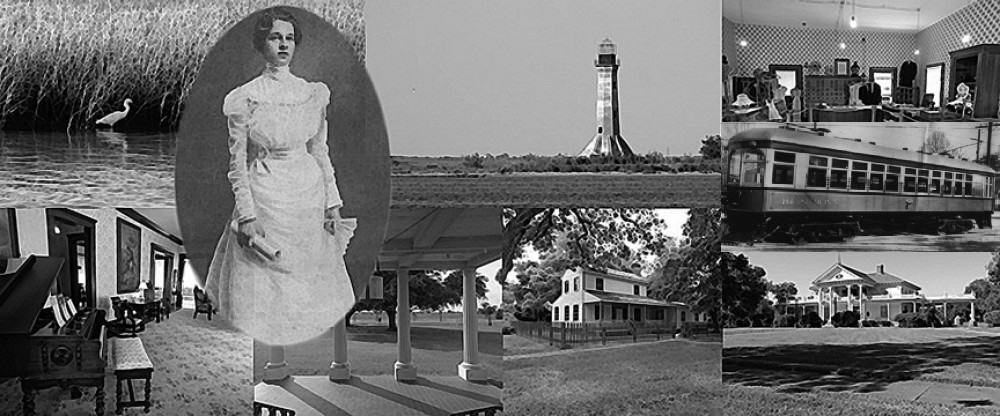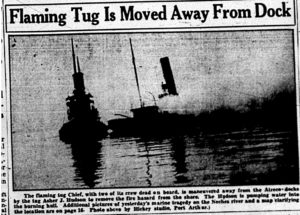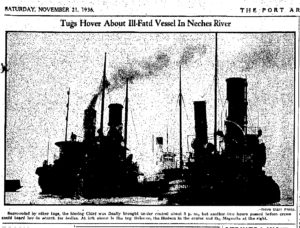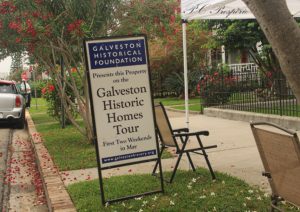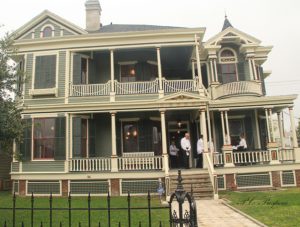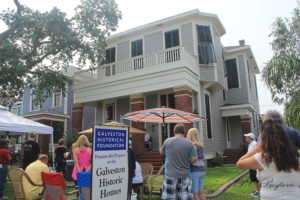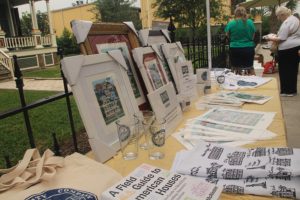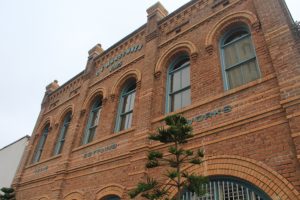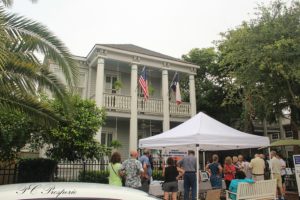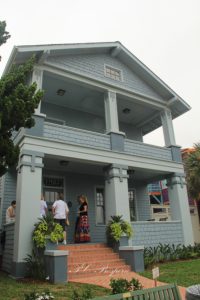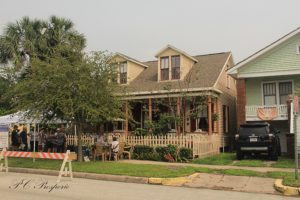You never know what you’ll uncover when you type your last name into a newspaper archive. A marriage here, a birth there, and even a blurb in the social pages of the time about your grandparents visiting New Orleans in the 20s. I found accounts of uncles who went off to war, a sister and a cousin (who were seven at the time) moving up in the ranks of the local Girl Scouts, and a few other interesting family members’ antics that we shall not talk about here. Most of the material comprises a bit of fun history to share, but I also found a tragedy that made headline news and had serious repercussions for the families involved. This particular story is one that I personally never knew about, but some of my cousins say they have heard bits and pieces over the years, so let us investigate further.
In the 1920s, like everyone else at the time, my family travelled here to make their living. The second Spindletop oil boom was amassing great wealth for some and providing most others with a good lifestyle. Even through the beginning of the Great Depression in the 1930s, our area seemed to be spared the brunt of the effects that otherwise plagued this era. Most of our clan was located in Port Arthur and worked at the Gulf refinery or the Texaco Company, but there were a few who lived and worked in Beaumont. Of particular interest in this case was my great uncle, Robert Joseph Prosperie. He was employed at the Magnolia Refinery as a fireman on the tugboat Chief.
Other than what’s in the census records, not much is known about my great uncle’s life before November 20, 1936. But the tragedy of that Friday would play out in the periodicals and affect other families as well. 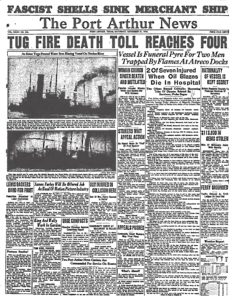
On Saturday the 21st, the Port Arthur News headline read “TUG FIRE DEATH TOLL REACHES FOUR. Vessel is Funeral Pyre For Two Men Trapped By Flames At Atreco Docks.”
The Atreco docks, which are today owned by Total, are located near the Rainbow Bridge. The two men in the funeral pyre to which the headline refers were my great uncle and the Chief’s cook Paul Harris. Later, T.D. Lambert and Percy Snyder would be added to the list as they succumbed to their injuries at St. Mary’s Hospital on the Saturday morning. The rest of those who were injured managed to survive, despite one of them having sustained critical injuries. Oddly enough, the captain of the Chief was not on board at the time of the fire and was quoted as saying, “I guess I’m just a lucky guy.”
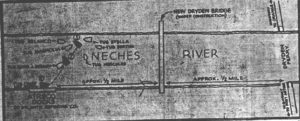 The incident began on the Friday afternoon after an eight-inch loading hose from the Atlantic Pipeline Company began spewing oil onto the parked tugboat, which was waiting for an incoming tanker to dock. Some accounts mention the use of electric welding torches as the ignitor, but one article in the Beaumont Journal stated that, according to witnesses, the oil ignited when it reached the engine room. Either way, tragedy ensued.
The incident began on the Friday afternoon after an eight-inch loading hose from the Atlantic Pipeline Company began spewing oil onto the parked tugboat, which was waiting for an incoming tanker to dock. Some accounts mention the use of electric welding torches as the ignitor, but one article in the Beaumont Journal stated that, according to witnesses, the oil ignited when it reached the engine room. Either way, tragedy ensued.
Paul Ernest, of Port Arthur, passenger of a passing ferry, described the scene as a fire burst over the vessel and men madly plunged into the waters.
Snyder, chief engineer, who died this morning, said he ordered the vessel into midstream when the oil began to spray.
“About that time,” he said, “something ignited the oil and the whole ship was enveloped in flames. I told members of the crew to jump, then leap into the water.” Beaumont Journal, November 21, 1936
My great uncle’s death certificate revealed death by drowning, and litigation on behalf of his surviving family members followed over the next two years. In the end, my great uncle’s wife was awarded $7,000, while his daughter received $1,000. Robert is buried at Magnolia Cemetery, but unfortunately his grave is unmarked.
I do not know if the rest of the victims of the Chief disaster were awarded monetary reparations, but I imagine, or at least I hope, they were, but one never knows when dealing with lawyers.
An odd endnote to this story is that I have a business client who owns a few properties around the old Magnolia Refinery, which is now Exxon Mobil Beaumont. One particular property that I have done work at on and off over the past 18 years or so when it was standing vacant, was actually my great uncle’s residence in 1936.
Synchronicity remains alive and well as I continue my journey through our history. It’s always interesting to see who or what will show up next.
